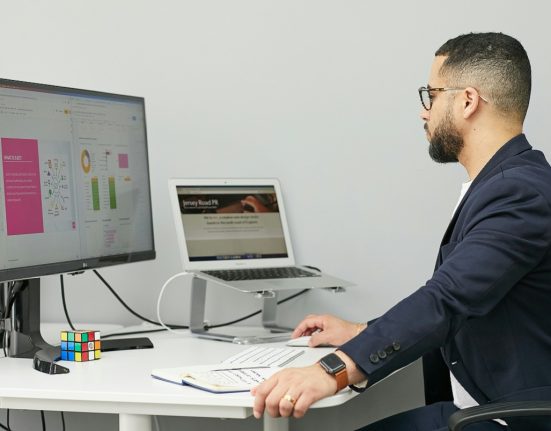COVID-19 is dramatically changing the future of work and employment. To remain relevant, today’s workers need to continually refine their skills in line with the new realities.
Like every major catastrophe the world has ever faced, COVID-19, the monstrous Severe Acute Respiratory Syndrome (SARS-CoV-2) disease currently ravaging the world, will come to an expected end. The corporate business will resume, the travel and tourism industries will return to business, and the private sector will bounce back. Likewise, small and medium scale enterprises will return while the government and the public sector will continue from where they stopped. In the euphoria of things returning to normal, a few other things will never remain the same. COVID-19, otherwise known as Coronavirus, is about to change our behaviour, the nature and structure of work, and our perception of work and employment.
How COVID-19 has impacted businesses
The impacts of the COVID-19 pandemic on businesses are still unfolding. But so far, it has changed industry structure, affected the shape of competition, and rendered pre-existing business forecasts unachievable. In the past, these forecasts alongside other traditional metrics used to be the basis for making business decisions. COVID-19 has exposed the vulnerabilities in every aspect of business and workforce management. The generally accepted norms and traditional ways of working have suddenly become obsolete. Thanks to COVID-19, a virtual workplace that used to be a novel idea has suddenly become the new normal.
The continued lockdown across cities and countries and the imperative of social distancing have seriously impacted customer services. COVID-19 has brought interpersonal relationships and workplace interactions to a gradual halt. The lockdown has forced people to remain at home leading to a sharp fall in individual and business spending.
The pandemic is still unfolding, yet businesses are already recording huge losses in revenue. The disruptions in the supply chain, particularly in countries with strong ties to endemic areas have led to serious losses in revenue and disappointments. Event cancellations and breaches in legal and contractual agreements have become inevitable despite good intentions by businesses. As the pandemic unfolds, business leaders are witnessing unexpected drift in their cash flow, earnings and balance sheet projections. This implies that they would have to adapt to the new realities imposed on them by the coronavirus.
One of the biggest impacts of COVID-19 is the shutting down of businesses in an unprecedented manner. This has resulted in soaring corporate bankruptcies thereby putting the financial services sector under severe pressure. Corporate businesses are also witnessing increasing risk portfolios. This has made it difficult to obtain new credit facilities or re-negotiate existing credit terms.
How businesses are responding to the challenges posed by COVID-19
Faced with the COVID-19 uncertainties, some organizations made some dramatic changes in their operations. The changes include activation of policies such as no-travel, work-from-home and physical distancing at work. Other changes made by these organizations include stoppage of new hiring and training and reduction in salaries. Because of the need to ensure business continuity and employee safety, companies are also adopting remote work, shift work and reduction of workload as new models for their operations. As a result of changing consumption patterns and customer demands, some other companies have transformed their products, changed their internal processes and adopted new business models.
The purpose of these changes is to enhance the operation of the businesses. It also aims to reduce the risks posed by COVID-19. In addition, these changes would help to reduce labour costs and to cushion the effects of falling demand on business products and services. However, they have also led to a massive reduction in productivity. As businesses hedge against the continuous slide in revenue projections, redundancies, layoffs and unemployment figures are expected to rise.
The future of business post-COVID-19
Post COVID-19, the future points to a “dramatic restructuring of the economic and social order in which business and society have traditionally operated,” according to a recent McKinsey Report. The lessons learnt from the ravaging impacts of COVID-19 will dictate the direction of the business. Three major factors have so far emerged as the most common drivers for change in the new business order expected to emerge post-COVID-19. These include social distancing and virtual or work-from-home policy. There is also the need to set up structures to manage sudden and unexpected risk portfolios.
Social distancing will trigger a drive towards contactless commerce and a renewed interest in online shopping. Social distancing will also bolster a shift in consumer behaviour. The drive for online presence will increase as companies will seek to make more investments in online platforms. Businesses will also seek to increase the quality of products sold online. Social distancing and the shift to online platforms will ultimately lead to further development of affiliate marketing, mobile workforce, activity-based work and agile work. Change management will therefore emerge as a critical process to keep workers aligned.
The COVID-19 induced crises may also lead to a shift in emphasis from traditional work culture to that of remote work, digital collaboration, workplace hygiene, and workforce protection. In a remote work environment, technology is invaluable as a means to interact and communicate. Thus, the use of advanced analytics and artificial intelligence technologies to support or augment human decision making will be commonplace.
COVID-19 has raised the consciousness of business leaders to the possibility of a new wave of disruptions in business activities in future. Accordingly, post-COVID-19, business continuity and employee-safety plans may become part of corporate policy.
The Implications for work and employment
Based on the history of past economic crises e.g. 2007-2009 world economic recessions, the changes created by COVID-19 may not be temporary. They may ultimately lead to new policy directions, new ways of working, and changes in employment policy. For instance, the imperative of remote work will compel corporate organizations to search for collaboration tools. It will also compel corporate organizations to train their employees on how to adapt to a virtual work environment.
In the new work order that will emerge, employees with flexibility and growth mindsets will remain relevant. On the contrary, employees with dogmatic or fixed mindsets may lose their positions to technology and machines. Also, employees who can adapt to the culture of remote work namely: being focused, avoiding distractions and being actively engaged in critical work, will find remote work purposeful and engaging.
Workers of the future will have to develop the skill to adapt to changing needs of the future workplace. This implies a continuous process of learning and personal development. The opportunities for self-improvement will be limitless as educational institutions are already moving online as an alternative to the physical classroom. As earlier stated, managers in the post-COVID-19 workplace will lead a major change development programme. Therefore, the skill to manage performance and to keep workers engaged and connected in a virtual work environment will become a major requirement for managers of the future.
In conclusion
The future of work and employment is shifting emphasis to skills in areas such as blockchain technology, analytical reasoning, artificial intelligence, UX design, business analysis, affiliate marketing and video production according to a recent LinkedIn 2020 Workplace Learning Report. Others include robotic and drone technology, cybersecurity and safety and cloud computing. In addition, soft skills such as creativity, persuasion, collaboration and teamwork, adaptability and emotional intelligence will continue to be in very high demand. COVID-19 has set the new normal for work and employment in the very near future. To remain relevant, today’s workers must continually refine their skills in line with the new realities.
You may also like to read the following articles
- How to develop the right attitude to survive layoffs
- How corporate environment shapes your post-employment behaviour
- Before the next layoff: Here’s how to reinvent your career
- 5 Unrealistic start-up assumptions that may kill your business
- Or get a copy of the online edition of my new book “From Paid Employment to Start-up: How to navigate the transition” from the following links below:








3 Comments